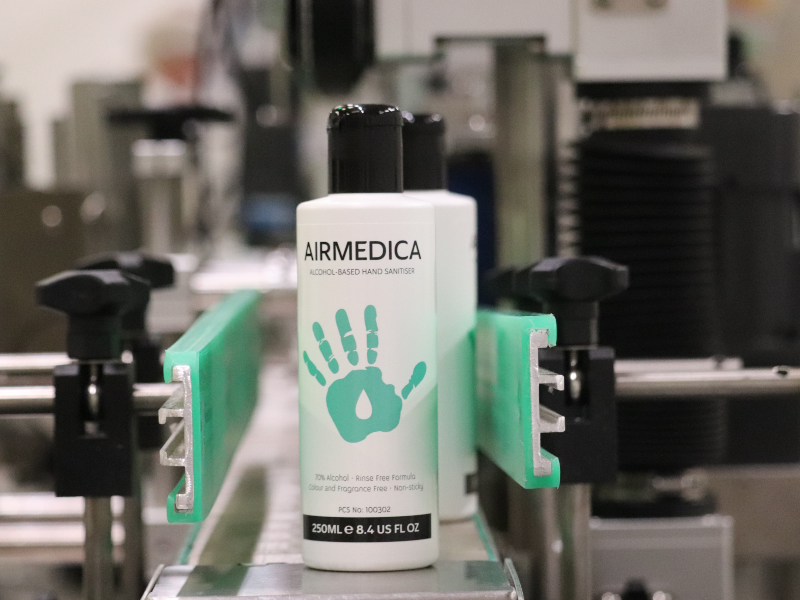While primarily a health crisis, the pandemic has also caused a severe economic shock impacting activity across all sectors of the economy.
Ireland’s consumer economy suffered its worst collapse in years as almost every business sector showed sharp declines as a result of the Covid-19 lockdown, according to the latest Consumer Market Monitor (CMM).
However, with many aspects of the collapse differing from the 2008 recession, there are reasons to be optimistic about the pattern of future recovery, said the report’s author professor Mary Lambkin of UCD Michael Smurfit Graduate Business School.
Since the outbreak of Covid-19 in the first quarter of 2020, almost every aspect of daily life has changed for people right across the globe.
Impact on business
While primarily a health crisis, the pandemic has also caused a severe economic shock impacting activity across all sectors of the economy. This shock has been felt first and foremost by consumers, especially those who have lost their jobs as a result of the shutdown of all non-essential businesses since March 27.
“Businesses have been focusing on reviewing their operations to see where they can reduce costs and what steps they need to put in place to make sure that their staff and customers are safe”
At the end of 2019, Ireland had a record number of people at work (2.36 million) and very low unemployment (4.7 per cent). However, since Covid-19 swept across the country forcing businesses to close, more than one million people were receiving support from special unemployment payments and wage subsidy schemes.
There are currently 589,000 people receiving the special Pandemic Unemployment Payment of €350 per week, with a further 214,700 people on the live register receiving Jobseeker’s Benefit of €203. Combining these two groups, the current rate of unemployment in Ireland stands at 28 per cent (pc).
In addition, 53,000 businesses employing 456,200 people are having their pay subsidised under the Covid-19 wage subsidy scheme.
A recent RTÉ article stated that Ireland’s economy could contract by 8pc in 2020 as the coronavirus pandemic continues to take its toll, according to the European Commission’s latest economic forecast. This reduction is greater than the 2008/9 economic crisis (economy fell 5pc in real terms in 2009). While the first half of 2020 is seen as a write-off, there is hope that business will pick up in the second half of the year and will begin a speedy recovery.
It is estimated that employee support payments are protecting up to 75pc of disposable income which should help to cushion spending. Despite this, however, a drop of 9pc in consumer spending is forecast for the full year of 2020.
“The recovery will be phased and there is no one size fits all solution”
Card spending data which includes cash taken out at ATMs gives a good indication of the pattern evident in recent months. Spending on debit and credit cards combined was up by 10pc in March compared to the same month in 2019. This was most likely due to the stockpiling that was witnessed in mid-March. However, card spending fell by 36pc in April year-on-year after the shutdown of all but essential retailers and most services outlets.
“There is no doubt that Irish businesses across all sectors of the economy have been hit hard by the impact of Covid,” says June Butler, head of SME banking and sectors at Bank of Ireland. “Businesses have been focusing on reviewing their operations to see where they can reduce costs and what steps they need to put in place to make sure that their staff and customers are safe. We have also seen great innovation from some of our customers who have very quickly put online sales channels in place, have offered click and collect services, and some who have refocused their operation on supplying materials needed to fight the Covid crisis.
“What has become very clear since the onset of this crisis is that the make-up of the Irish economy is complex and businesses are intertwined through national and global supply-chains, along with being spread across a range of sectors and activities. The recovery will be phased and there is no one size fits all solution.”
Since Covid-19 was declared a global pandemic, Bank of Ireland rolled out a range of supports for business customers impacted by the virus, which included payment breaks and working capital facilities.
“In Bank of Ireland we have seen that businesses are experiencing immediate liquidity and credit challenges and as a Group we have been working hard and will continue to work to ensure that we are part of the solution in getting as many of these businesses as possible back up and running,” she added.
Sectors
This general trend varied considerably across spending categories. Retail sales of food and drink performed very strongly in March, up 19pc year-on-year with people buying in bulk out of fears of leaving their home and possibly contracting the coronavirus.
In contrast, clothing and footwear were hit badly, down 52pc in March year-on-year, while department stores were also badly affected, down 28pc in March.
“In Bank of Ireland we have seen that businesses are experiencing immediate liquidity and credit challenges”
Service sectors such as transport, hotels and restaurants, arts and recreation have experienced drastic falls in business (80-90pc) in the first quarter and it seems unlikely that they will be able to recoup this loss over the summer.
Sales of big-ticket items like cars and property have also been badly hit. Sales of new cars were down 29pc in March and sales of imported used cars were down 39pc year-on-year. This decline in sales was further amplified in April when motor dealerships closed with sales falling by 90pc.
Experts are hoping that while spending has been deferred over the last two months, it may come back stronger later in the year as businesses begin to reopen throughout each phase of the Irish Government’s recovery plan.
By Stephen Larkin
Published: 22 May, 2020







